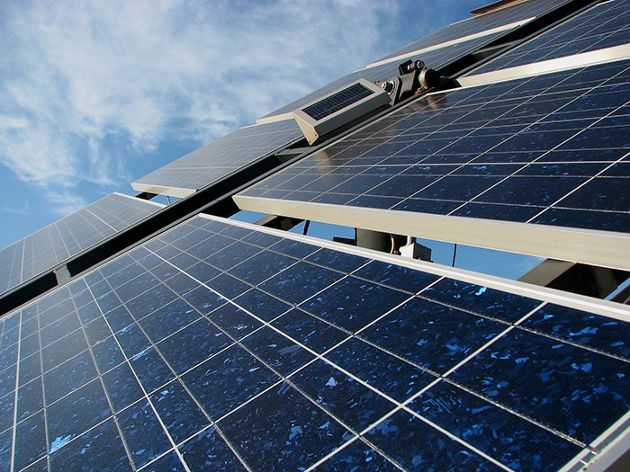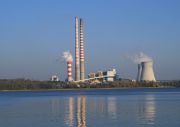-
 Great Expectations: Is Greece 2.0 hitting the target?
Great Expectations: Is Greece 2.0 hitting the target?
-
 Record year for Greek tourism raises concerns about sustainability
Record year for Greek tourism raises concerns about sustainability
-
 What is driving the Greek housing market's recovery?
What is driving the Greek housing market's recovery?
-
 Record FDI flow into Greece raises bar, but is it sustainable?
Record FDI flow into Greece raises bar, but is it sustainable?
-
 Balance of payments shows shipping on course for bumper year, but economic benefits unclear
Balance of payments shows shipping on course for bumper year, but economic benefits unclear
-
 One unicorn does not a Silicon Valley make: positive news on startup front also highlights limitations
One unicorn does not a Silicon Valley make: positive news on startup front also highlights limitations
Energy conference highlights path and obstacles to European energy integration

The second annual “Athens Conference of European Energy Law” took place on Friday at the Athens Chamber of Commerce and Industry.
The event, organised by the M&A Law Firm, the Hellenic Energy Regulation Institute, and the Florence School of Regulation, invited experts and key industry figures to shed light on current legal developments in the European energy framework. Particular focus was given to strategies to secure Europe’s energy security, the role of Gazprom and the position of Turkey in the makeup of the eastern Mediterranean energy sector.
Discussing the current and future plans of Europe in terms of hydrocarbons and alternative sources of energy, Anne Houtman, former Principal Advisor at the European Commission's Directorate General for Energy, said that there is a lot of potential, but that much remained to be done. “The situation is highly complex, which deters investments. Much debate is needed to get it right.”
“The eastern Mediterranean plays a key role,” she said in her keynote speech. “We are witnessing a shift in the energy mix. The task at an EU level is for the right regulatory framework to accompany and favour this change.”
Of particular interest to Greece in terms of energy security is the role of Turkey, whose cooperation on energy has been tied to the country’s EU accession ambitions. In the build-up to the recent German elections, Angela Merkel stated during a televised debate that “Turkey will never become an EU member state,” causing concern in Athens.
Nicolo Sartori, Head of the Energy, Climate and Resources Programme at the Istituto Affari Internazionali, addressed these concerns. “Turkey has been moving closer to Russia, but it’s in Turkey’s strategic interest to continue its cooperation with the EU,” he said. “Cooperation between the EU and Turkey is a multilayer factor. There has been a lot of progress in terms of the electricity market, because that tends to be much less geopolitical than the gas market.”
Speaking on the integration of the European gas market, Sofia Michelaki, Head of the Legal Department at the Hellenic Gas Transmission System Operator (DESFA), remarked on the prospects of a Europe with a uniform gas network system. “Although the market cannot be considered fully integrated and there is much to be done, it should be recognised that the market participants have significantly contributed towards the goal of an integrated market.”
Nektaria Karakatsani, a member of the Board of the Greek energy regulator (RAE) provided an update on energy reforms in Greece. “In Greece, we sometimes follow peculiar rules but we are in the adjustment process,” she said. “The transition to a target model is a major challenge. A huge amount of deliverables have now been developed and received. We are working intensely to attain market coupling with Italy initially, then Bulgaria and other energy community countries,” she concluded.
Renewable energy was touched upon throughout the conference, with Ulrich Laumanns, Project Manager of Deutsche Gesellschaft für Internationale Zusammenarbeit (GIZ) focusing specifically on the integration of renewable energy generators into the Greek energy market.
“There is an increasingly urgent need for proceeding with the modifications of the electricity system and market codes necessary for the participation of RES generators and aggregators in the electricity market,” he said. “Electricity market integration will entail new challenges but also new opportunities.”
Other issues covered during the conference included encouraging energy consumers to take a more active role as “prosumers” to press for better energy deals, wholesale price convergence across the EU and securing Europe’s energy supply from alternative sources.
A convergence in energy models has been a long-standing goal of the European Union. The conference offered the opportunity to assess current developments towards this goal, regional bottlenecks and Greece’s own geopolitical role in the European energy market.
 Athens goes over energy plans, eyes enhanced role
Athens goes over energy plans, eyes enhanced role  Greece as an energy hub: Reality or wishful thinking?
Greece as an energy hub: Reality or wishful thinking?  Energy efficiency: Legal parameters of a very substantial economic and strategic issue for Greek companies
Energy efficiency: Legal parameters of a very substantial economic and strategic issue for Greek companies